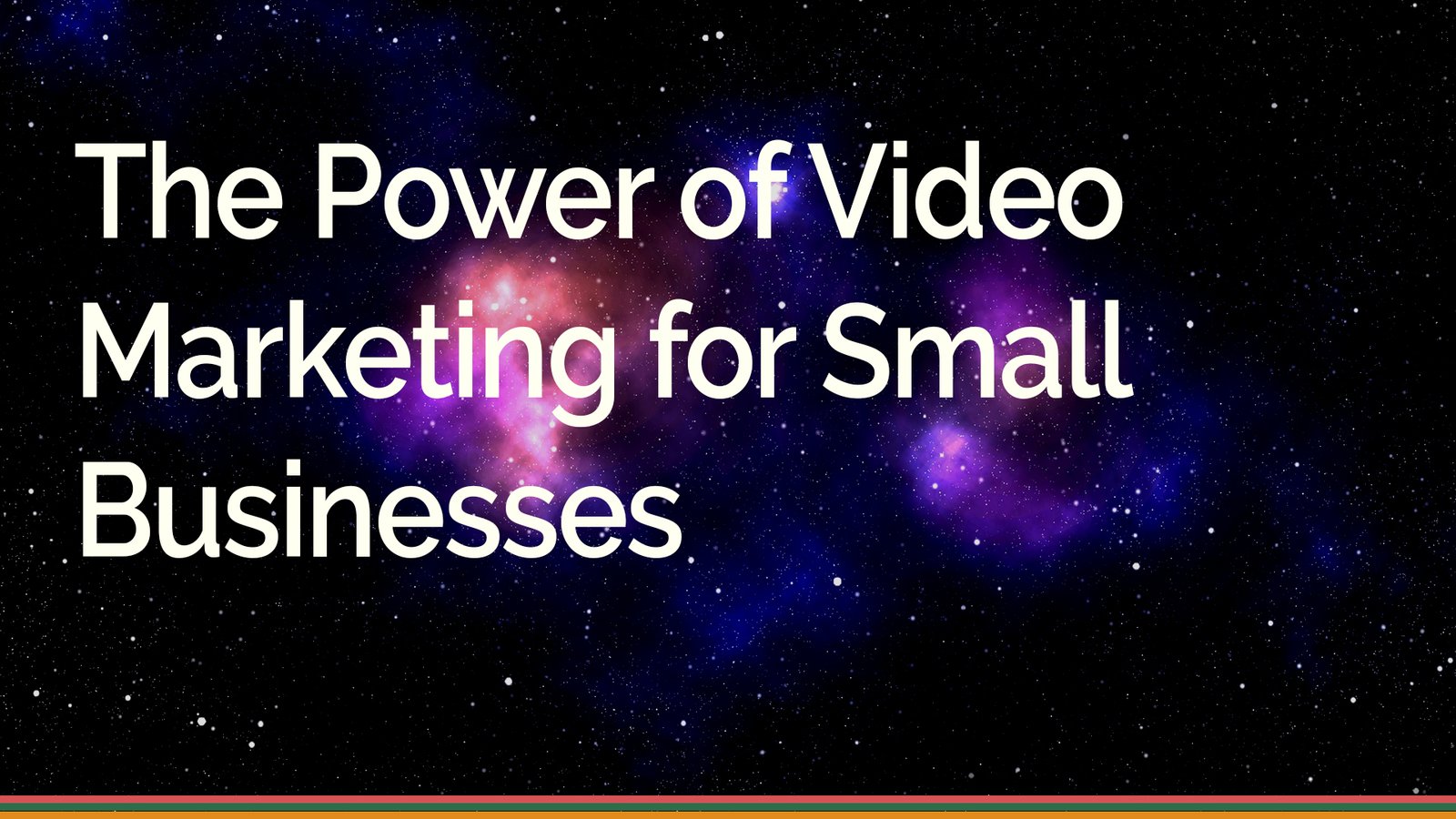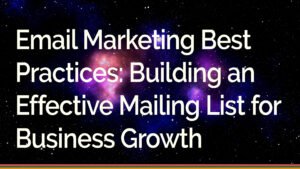In today’s digital age, video marketing has emerged as one of the most powerful tools for businesses looking to enhance their online presence, engage customers, and drive conversions. With over 90% of marketers claiming that video content is an essential part of their strategy, small businesses have a unique opportunity to leverage video marketing to reach broader audiences. At Neocube, we provide digital marketing services and web application development to help small businesses create, distribute, and optimize their video content. In this blog, we’ll explore the benefits of video marketing, provide practical strategies, and explain why it’s a must for small businesses.
Table of Contents
1. Why Video Marketing is Essential for Small Businesses:
Video content is no longer a luxury reserved for big brands. With the rise of platforms like YouTube, TikTok, Instagram, and even LinkedIn, small businesses can reach large audiences with relatively low budgets. Here are some compelling reasons why video marketing is essential for small businesses:
- Boosts Engagement: Video is more engaging than any other form of content. According to research, video posts on social media generate 48% more views than other types of content. They are also more likely to be shared, increasing your reach and engagement.
- Improves Conversion Rates: Landing pages with embedded videos can increase conversion rates by up to 80%. Videos can explain complex products or services, help build trust, and encourage viewers to take action.
- SEO Benefits: Video content can boost your website’s SEO ranking. Pages with video are 53 times more likely to rank on the first page of Google search results. Search engines prioritize rich content, and video provides a perfect medium to engage visitors for longer periods.
- Cost-Effective: Modern tools and platforms like Canva, InVideo, and Adobe Spark allow small businesses to produce professional-quality videos on a budget.
2. Understanding Your Audience and Goals:
Before diving into video production, it’s crucial to understand your audience. Ask yourself:
- Who are my target customers?
- What kind of content do they engage with the most?
- What platforms do they spend the most time on?
This helps guide your video marketing strategy. For example, explainer videos or product demos are ideal for businesses that offer complex services or products, while testimonial videos work well to build credibility and trust. Additionally, clearly defined goals such as increasing website traffic, boosting sales, or enhancing brand awareness will guide your efforts.
3. Types of Videos for Small Businesses:
Not all videos are created equal. Different types of videos can be used for various stages of the marketing funnel:
- Explainer Videos: These help clarify what your product or service does. Simple, short, and to the point, they are great for grabbing the attention of prospects in the awareness stage.
- Product Demonstrations: Perfect for converting prospects into customers. These videos show the functionality and benefits of your product or service in real-time.
- Customer Testimonials: Social proof is incredibly effective. Showcasing satisfied customers builds trust with new prospects and humanizes your brand.
- Behind-the-Scenes Videos: Sharing how your business operates adds transparency and builds authenticity. It also helps connect with your audience on a more personal level.
- Educational Content: Providing value through tutorials or how-to videos positions your business as an industry expert, helping to build credibility and trust.
At Neocube, we integrate video marketing into your broader digital marketing strategy to ensure maximum visibility and impact.
4. Optimizing Videos for SEO:
To ensure that your videos reach your target audience, optimizing them for SEO is critical. Here are some ways to ensure your videos are discoverable:
- Use Keywords in Titles and Descriptions: Include relevant keywords in your video title and description to help search engines understand what your content is about. This boosts your chances of ranking higher on platforms like YouTube and Google.
- Create Transcripts: Search engines can’t “watch” videos, but they can read. Including transcripts for your video content can improve SEO and accessibility.
- Add Tags: Use relevant tags when uploading videos on platforms like YouTube to improve discoverability.
- Include a Call to Action (CTA): Encourage viewers to take action by including a clear and concise call to action at the end of your videos, whether it’s subscribing to your channel, visiting your website, or signing up for your newsletter.
Neocube’s web application development expertise can help you seamlessly integrate video content into your website and marketing channels, ensuring an optimized user experience.
5. Choosing the Right Platforms:
Each platform has unique strengths, so it’s important to choose wisely depending on your goals and audience.
- YouTube: As the second-largest search engine globally, YouTube is a must for most businesses. It allows for long-form content and great discoverability.
- Instagram & TikTok: These platforms are excellent for short-form, engaging content. For small businesses targeting a younger audience, these are critical platforms.
- LinkedIn: Ideal for B2B video marketing, LinkedIn allows small businesses to share industry insights, case studies, and business updates with a professional audience.
6. Repurposing and Distributing Your Videos:
Maximizing your video content’s reach involves repurposing it across multiple channels. For example, a product demo video can be edited into short clips for Instagram Stories or TikTok, while the full version remains on YouTube or your website.
Don’t forget to use email marketing, social media posts, and paid ads to promote your video. Embedding videos in your email campaigns can increase click-through rates by up to 300%.
7. Measure Success and Adjust:
As with any marketing strategy, the key to success in video marketing lies in measurement and optimization. Track metrics such as:
- View Count
- Engagement (likes, comments, shares)
- Click-Through Rate (CTR)
- Conversion Rate
Tools like YouTube Analytics, Google Analytics, and Facebook Insights can provide valuable data to help refine your video marketing strategy over time.
At Neocube, we use advanced analytics to monitor the performance of our clients’ video campaigns and provide actionable insights to drive improvement.
Conclusion:
Video marketing is one of the most powerful and cost-effective tools small businesses can use to boost brand awareness, engage customers, and drive conversions. At Neocube, we offer digital marketing services and web application development to help small businesses create compelling video content, optimize it for SEO, and integrate it seamlessly into their broader marketing strategy. Get in touch with us today to see how we can help you unlock the power of video marketing for your business.





